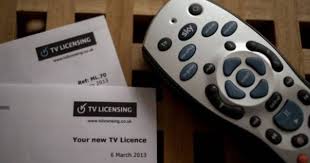Understanding the BBC TV Licence: What You Need to Know

Introduction to the BBC TV Licence
The BBC TV Licence is a mandatory fee that UK residents must pay to legally watch or record live television broadcasts and access BBC iPlayer. As an integral part of the BBC’s funding model, the licence fee has been a topic of ongoing debate, especially regarding its value and fairness in the modern content landscape. With changes in viewing habits, understanding the implications of the licence is essential for viewers and society alike.
What the BBC TV Licence Covers
The cost of a TV Licence in 2023 is £159 for a colour licence and £53.50 for a black and white licence. This fee allows viewers to watch any live TV programmes on any channel, including traditional broadcasts and services like ITV and Channel 4, so long as they are being shown live. Additionally, the licence gives access to the BBC’s streaming service, BBC iPlayer, which has grown tremendously in popularity over the years. As of October 2023, over 4 million users access iPlayer regularly, highlighting the service’s significance in the UK’s entertainment ecosystem.
Enforcement and Penalties
The enforcement of the TV Licence is conducted by the BBC through a variety of means. A complex system of monitoring and investigation is in place to ensure compliance. Reportedly, around 40% of UK households pay for a TV Licence, leading to rising concerns about evasion and potential penalties. Failure to hold a valid licence can result in a fine of up to £1,000, a significant deterrent for non-compliance. In 2022, the BBC reported nearly 200,000 prosecutions for licence evasion, showcasing the stringent measures in place.
The Ongoing Debate
The issue of the BBC TV Licence has prompted substantial public discourse regarding its future. Critics argue that changes in technology and viewing habits deem the current model outdated, while supporters assert that it ensures quality broadcasting that is free from commercial pressures. Recent surveys indicate that public opinion is divided: 42% of respondents believe the licence should remain, while 30% advocate for its abolishment. As the BBC faces pressure over funding and relevance, the organisation is preparing to adapt to changing viewer expectations.
Conclusion: What Lies Ahead for the BBC TV Licence?
Looking forward, discussions surrounding the BBC TV Licence are likely to intensify alongside shifts in the media landscape. The BBC is expected to explore new revenue streams and potentially reshaping its service offerings to stay relevant. An ongoing debate about the fairness and sustainability of the licence fee system reflects broader societal trends in consumption, access, and funding of public services. For viewers, understanding the implications of the TV Licence is crucial as the landscape continues to evolve.









